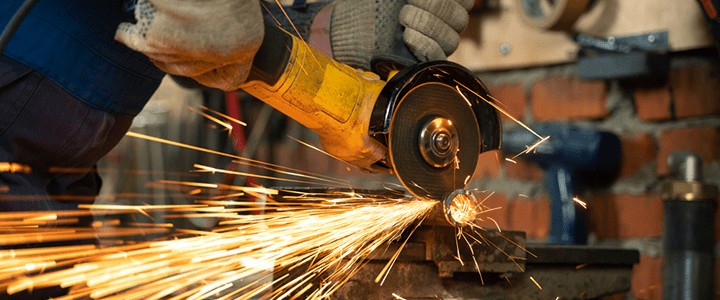


 349,500 Offered Certificates
349,500 Offered Certificates
 24/7 Online Training
24/7 Online Training
 Money Back Guarantee
Money Back Guarantee
 Fully Accredited Courses
Fully Accredited Courses

Created at: 22-02-2025 22:57
Abrasive wheels are essential tools in the manufacturing and construction industries, but they come with significant risks if not handled correctly. Mismanagement of these tools can lead to serious injuries, costly downtime, and even fatalities. In cities like Dublin, Cork, Galway, Limerick, and Waterford, understanding common mistakes employees make and implementing the right training can significantly reduce these risks. In this article, we’ll explore these frequent errors and how proper training can prevent them.
Abrasive wheels are rotating tools used for grinding and cutting metals, masonry, and other materials. Despite their usefulness, these wheels can be dangerous if not operated safely. The following sections will highlight the most common mistakes employees make when using abrasive wheels.
A major mistake workers make is using the wrong abrasive wheel for the job. Each wheel is designed for specific materials and applications; using an incompatible wheel can result in breakage or injury. For instance, using a cutting wheel instead of a grinding wheel can lead to shards flying off, posing a risk to nearby workers.
In a manufacturing facility in Dublin, a worker used a cutting wheel meant for soft metals to attempt grinding a hardened steel component. The wheel shattered, leading to severe injuries that could have been avoided with proper training.
Another common oversight is the failure to use appropriate PPE. Safety goggles, face shields, and protective clothing are essential when operating abrasive wheels. Not wearing PPE exposes workers to potential hazards, including flying debris and noise-related damage.
In a Cork workshop, several workers opted not to wear safety goggles during cutting operations. During one session, a fragment from a broken wheel struck an employee’s eye, resulting in permanent damage. This mishap underscores the importance of adhering to safety procedures.
Many companies skip thorough risk assessments before work begins. Without assessing the environment and potential hazards, employees may be exposed to unforeseen dangers. A proper risk assessment identifies risks and implements control measures to keep workers safe.
A construction crew in Galway began work on a site without identifying nearby electrical lines. During the operation with abrasive wheels, they accidentally struck a line, causing a power outage and jeopardizing safety.
Failing to adhere to established safety procedures is another mistake that leads to accidents. Safety protocols encompass everything from wheel inspection to securing materials before cutting or grinding. Not following these procedures can result in neglected safety measures.
In Waterford, a worker resumed using an abrasive wheel without inspecting it for damage. Shortly after starting the equipment, the wheel exploded due to undetected cracks, injuring the operator and others nearby.
Proper training plays a crucial role in mitigating the risks associated with abrasive wheels. Companies in Dublin, Cork, Galway, and across Ireland can significantly enhance workplace safety by providing employees with **certified Abrasive Wheels training**. This training covers:
To minimize accidents and enhance productivity, it is imperative for businesses to invest in comprehensive training programs. Such programs are available throughout Ireland, including:
Understanding and avoiding common mistakes when using abrasive wheels is crucial for ensuring worker safety. Lack of training can lead to serious accidents that could otherwise be prevented. Don't wait for an incident to occur; take action now by enrolling in certified training programs. For more information, contact us at [email protected].